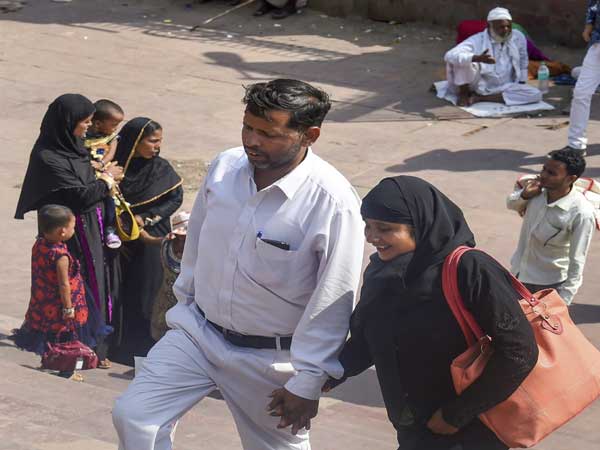
The Union Cabinet on Wednesday approved an ordinance to ban the practice of instant triple talaq, with Law Minister Ravi Shankar Prasad saying there was a “compelling necessity” to bring the measure as instances of talaq-e-biddat continued unabated despite the Supreme Court striking it down. Under the proposed ordinance, giving instant triple talaq will be illegal and void and will attract a jail term of three years for the husband.
Seeking to allay fears that the proposed law could be misused, the government has included certain safeguards in it such as adding a provision of bail for the accused before trial. These amendments were cleared by the Cabinet on August 29.
At a press conference to announce the decision, the Law Minister attacked the opposition Congress, saying it is not supporting the bill pending in Rajya Sabha under “vote bank pressures”. Prasad said he tried to take the cooperation of the Congress along with other parties. “I met Congress leader Anand Sharma five to six times...we sought cooperation,” he said adding that there was no response from the main opposition party. “It is my serious charge that Sonia Gandhi ji has maintained silence on the issue,” he said. He urged Sonia Gandhi, BSP supremo Mayawati and TMC chief Mayawati to support the bill in the next session of Parliament for the sake of “gender justice, equality and dignity”.
BJP leaders soon joined in Opposition bashing. BJP president Amit Shah said, “This ordinance is also a matter of guilt and introspection for them as they forced Muslims women to suffer from this bad practice for decades due to their vote bank politics.” Party spokesperson Sambit Patra hailed the government decision and took a dig at Congress leader Kapil Sibal, saying he defended the practice in the Supreme Court.
While the proposed law makes it a “non-bailable” offence, an accused can approach a magistrate even before trial to seek bail. In a non-bailable offence, bail cannot be granted by police at the police station itself. Prasad said a provision has been added to allow the magistrate to grant bail “after hearing the wife”.
Sources later said the magistrate would ensure that bail is granted only after the husband agrees to grant compensation to the wife as provided in the bill. The quantum of compensation will be decided by the magistrate, as per the bill.
The police would lodge an FIR only if approached by the victim (wife), her blood relations or people who become her relatives by virtue of her marriage. Neighbours and others cannot lodge a complaint under the proposed law. The offence of instant triple talaq will be “compoundable”. Now, a magistrate can use his powers to settle the dispute between a husband and his wife. This will happen only when the wife approaches the court. Under a compoundable offence, both parties have the liberty of withdrawing the case. The proposed law would only be applicable on instant triple talaq or ‘talaq-e-biddat’ and it would give power to the victim to approach a magistrate seeking “subsistence allowance” for herself and minor children. A woman can also seek the custody of her minor children from the magistrate who will take a final call on the issue.
Citing details of triple talaq cases, the minister said till now 430 incidents of triple talaq have come to the government’s notice. Of these, 229 were reported before the Supreme Court judgement, while another 201 came to our notice after it. These cases were reported between January 2017 and September 13, 2018.
Ishrat Jahan, one of the five petitioners in the triple talaq case, welcomed the decision calling it a big step towards “empowering Muslim women” in the country. Muslim men and religious leaders should now mend their ways or be ready to face the music, she said. Jahan had moved court after she was divorced by her husband over phone from Dubai by uttering ‘talaq’ thrice in 2014. She has a 13-year-old daughter and a seven-year-old son.


